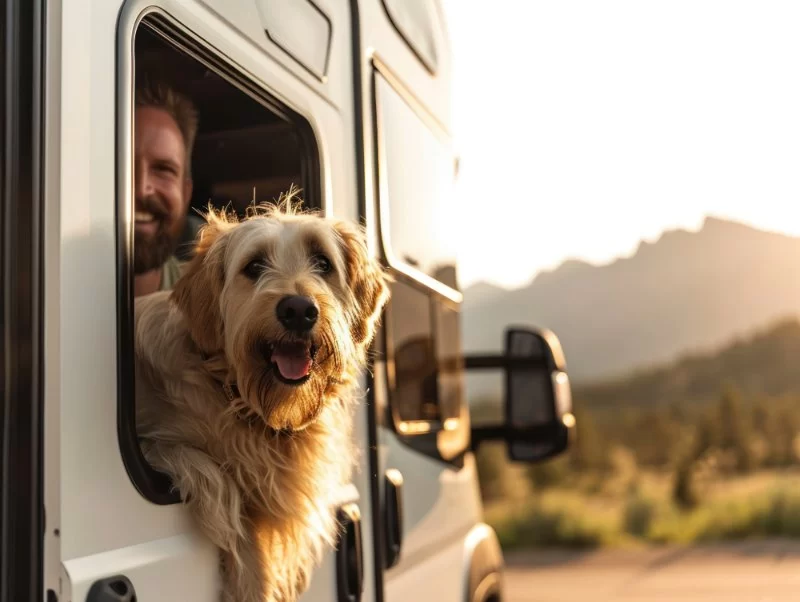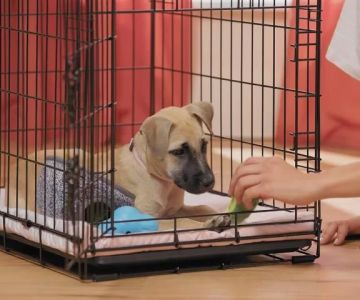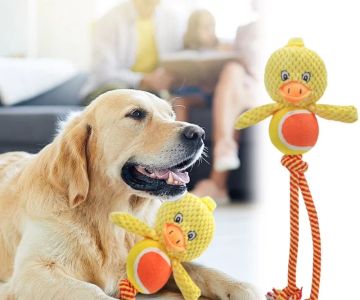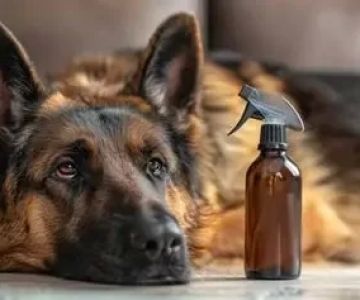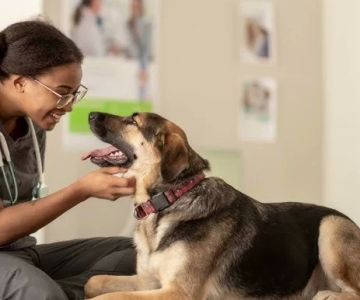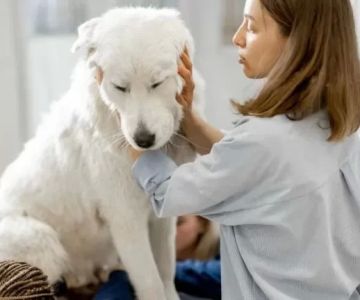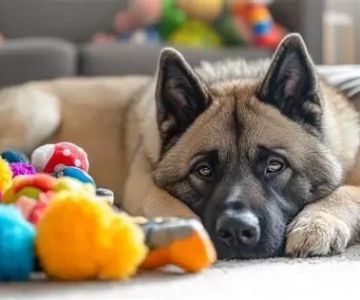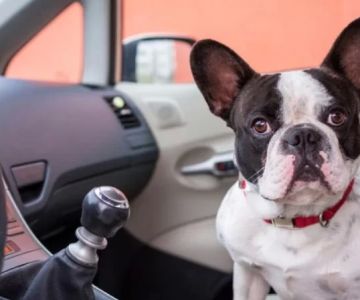Understanding Why Pets Experience Anxiety During Travel
Traveling with pets can be both exciting and challenging. Many pet owners are surprised to see their calm, happy pets turn anxious once the car engine starts or the travel crate appears. Pets—whether dogs or cats—can develop travel anxiety due to unfamiliar environments, motion sickness, loud noises, or previous negative experiences. Recognizing the signs early can make the difference between a stressful trip and a smooth journey.
Common symptoms of travel anxiety in pets include panting, drooling, trembling, excessive vocalization, pacing, or even attempts to escape. In some cases, pets may refuse food or hide when they sense travel preparations. Understanding these signs allows you to take proactive steps to help your furry companion feel secure before, during, and after the trip.
Preparing Your Pet Before the Trip
Preparation is key to reducing pet anxiety during travel. Start by familiarizing your pet with their travel carrier or the car environment well in advance. Place the carrier in a common area with your pet’s favorite toys, blanket, or treats inside. This helps your pet associate the carrier with comfort instead of confinement.
For dogs, take short practice drives to get them used to car motion. Start with a few minutes and gradually increase the duration. Reward calm behavior with gentle praise or a treat. For cats, practice placing them in their carrier for short periods while offering comfort and reassurance. The goal is to build familiarity and reduce fear through positive associations.
Another important aspect is scheduling a check-up with your veterinarian before any long-distance trip. At Hidden Brook Veterinary, our experts often recommend anxiety-reducing options such as pheromone sprays, natural supplements, or safe prescription medications tailored to your pet’s needs. A quick pre-trip visit ensures your pet is healthy and ready for travel.
Creating a Comfortable and Safe Travel Environment
Your pet’s comfort during travel depends largely on the environment you create. Always use a well-ventilated carrier or travel crate that allows your pet to stand, turn, and lie down comfortably. Secure it safely to prevent sliding or tipping during sudden stops.
Keep the car temperature moderate, avoiding extremes of heat or cold. Play soft, calming music and avoid sudden loud noises. Some pet owners find that covering the carrier with a light blanket helps reduce visual overstimulation, particularly for cats. However, always ensure adequate airflow.
For longer trips, plan regular stops—about every two to three hours—to allow dogs to stretch, relieve themselves, and drink water. Cats can benefit from quiet moments with gentle words of comfort to reduce stress. Consistent reassurance and a calm atmosphere will help your pet relax throughout the journey.
Using Calming Products and Natural Remedies
There are several effective tools and products designed to ease pet anxiety during travel. Pheromone-based sprays, collars, and wipes can mimic natural calming scents that reduce stress. For example, products like Adaptil for dogs and Feliway for cats can be applied inside carriers or on bedding before departure.
Natural supplements containing ingredients such as chamomile, L-theanine, or valerian root can also promote relaxation. Some pets respond well to CBD oil formulated specifically for animals, though you should always consult your veterinarian before use. Hidden Brook Veterinary provides tailored recommendations based on your pet’s breed, health, and temperament to ensure safe and effective results.
In more severe cases, veterinarians may prescribe mild anti-anxiety medications or sedatives for long trips or flights. These should only be used under professional supervision and according to dosage instructions.
Training and Behavior Techniques for Calmer Travel
Behavioral conditioning is one of the most effective long-term strategies to reduce pet travel anxiety. Begin by teaching your pet that travel is a positive experience. Use gradual exposure techniques: start by sitting in the car without turning it on, then progress to short drives, rewarding calm behavior each time.
Some pets benefit from crate training at home, where the crate becomes a “safe zone.” Feeding your pet in the crate or allowing them to rest there voluntarily helps them associate it with comfort and security. Over time, your pet will begin to view the crate as their personal sanctuary, even during travel.
For particularly anxious pets, professional trainers or animal behaviorists can provide structured desensitization programs. These programs focus on gradual exposure to travel-related stimuli, reinforcing calm responses through positive reinforcement techniques.
Real-Life Story: How Bella Overcame Her Travel Anxiety
Bella, a three-year-old Golden Retriever, once dreaded car rides. Her owner, Emily, described how Bella would whine and shake as soon as she saw the car keys. After consulting with Hidden Brook Veterinary, Emily followed a step-by-step desensitization plan combined with natural calming aids. Within a few weeks, Bella began to associate car trips with fun outings and treats. Today, Bella eagerly hops into the car, tail wagging, ready for any adventure.
This real-world example shows that with patience, professional guidance, and consistency, even the most anxious pets can learn to travel peacefully. Every pet is different, so it’s essential to adapt strategies based on individual behavior and comfort levels.
Air Travel Tips for Nervous Pets
Air travel poses unique challenges for pets due to unfamiliar sounds, handling, and cabin pressure changes. Always check airline policies regarding pet travel well in advance. For smaller pets, in-cabin travel is usually less stressful since they can stay close to their owner. Use an airline-approved carrier and line it with familiar bedding to provide comfort.
If your pet must travel in the cargo hold, schedule the flight during mild weather to avoid temperature extremes. Attach identification tags with contact information and ensure your pet is hydrated before the journey. Avoid feeding right before departure to reduce motion sickness.
For pets with severe anxiety, discuss sedation options or specialized travel crates with your veterinarian. The goal is always to prioritize your pet’s safety and emotional well-being throughout the journey.
After the Trip: Helping Your Pet Settle Down
Once you’ve reached your destination, allow your pet time to adjust. Provide a quiet space with their familiar toys and bedding. Offer water and small portions of food to prevent upset stomachs. Keep routines consistent—feeding, playtime, and rest periods should follow their usual schedule to restore a sense of normalcy.
If your pet continues to display signs of anxiety after travel, such as pacing, hiding, or refusal to eat, seek professional advice. Hidden Brook Veterinary offers post-travel consultations to help pets readjust and prevent lingering stress effects.
Creating Lifelong Positive Travel Habits
Reducing pet anxiety during travel isn’t just about one trip—it’s about building lasting confidence. Over time, positive travel experiences can help your pet view journeys as enjoyable adventures rather than frightening ordeals. Celebrate small victories and reward calm behavior every step of the way.
By combining preparation, comfort, and expert guidance, you can ensure your pet enjoys safe, happy travels—whether it’s a weekend road trip or a cross-country move. Hidden Brook Veterinary is here to support every step of your journey, offering trusted advice, calming solutions, and compassionate care for pets who deserve the best.

